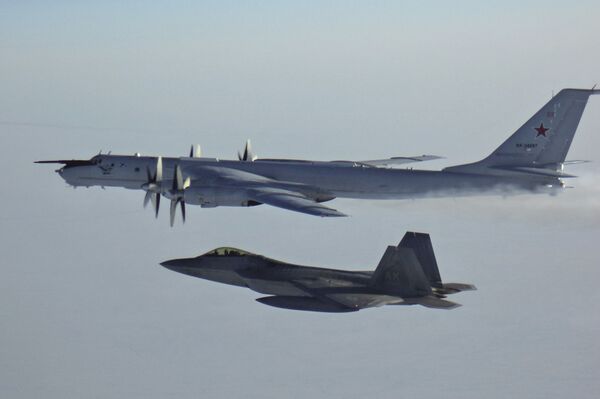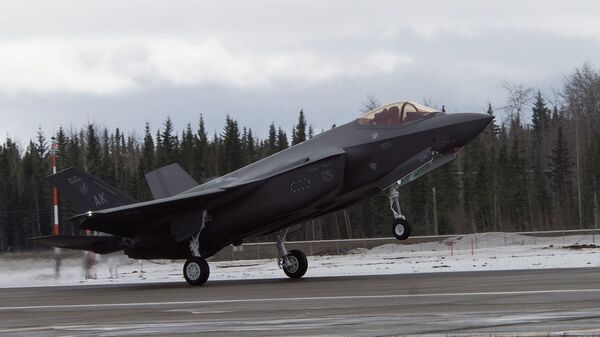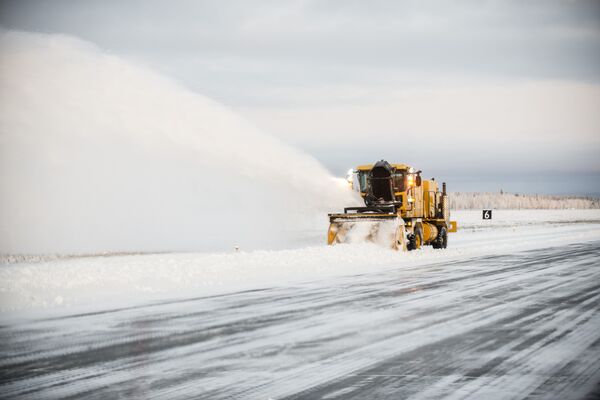Located in central Alaska, just south of the city of Fairbanks, Eielson Air Force Base received its first two F-35A Lightning II stealth aircraft on Tuesday, the Air Force announced in a news release.
The base will house 54 of the stealthy fighters by the end of the year, according to the release. Eielson is also home to the Joint Pacific Alaska Range Complex (JPARC), a major training area for pilots, and F-22 Raptors, a stealthy fighter built by Lockheed Martin just like the F-35s are, are stationed at Joint Base Elmendorf-Richardson 250 miles to the south.
Due to the extreme demands placed on the notoriously temperamental aircraft by the harsh climate, the F-35 and its pilots required special preparations for flying and landing in icy conditions before they could be deployed to Alaska.
Col. Benjamin Bishop, who commands the 354th Fighter Wing at Eielson, noted that with the F-22 and JPARC readily at hand, as well as specially trained aggressor training squadrons, “you have the perfect training field for the F-35 to develop.”
Although deployment of the F-35s to Eielson has been expected since 2016, their arrival comes amid renewed tension in the region after unusual hubbub has been made about several intercepts of Russian maritime patrol craft.
On March 14, two Tu-142 maritime patrol aircraft were intercepted by F-22 fighters over international waters in the Chukotsk and Beaufort Seas; then on April 9, two Il-38 maritime patrol aircraft were intercepted by F-22s over international waters in the Bering Sea, which separates Alaska from the Russian Far East.
The incidents prompted US defense officials and media to claim Russia was testing US defenses as the country grapples with the COVID-19 pandemic that has killed close to 50,000 Americans.

Gen. Billy Mitchell, who played an instrumental role in the development of US air power, once mused that “Whoever holds Alaska will hold the world,” advocating the building of airfields across the region.
After World War II, Alaska served as the frontier for US strategic defense against missile and bomber attacks directed toward the US mainland. Bombers and ballistic missiles seeking to deliver nuclear strikes on targets in Canada or the lower 48 US states are most likely to travel over or near the North Pole, whether they fly from Russia, North Korea or China.
As a consequence, the US has stationed some of its most advanced fighter squadrons in the remote Alaskan tundra, as well as powerful radars such as the Long Range Discrimination Radar and the Ground-Based Midcourse Defense ballistic missile interceptors it supports.



